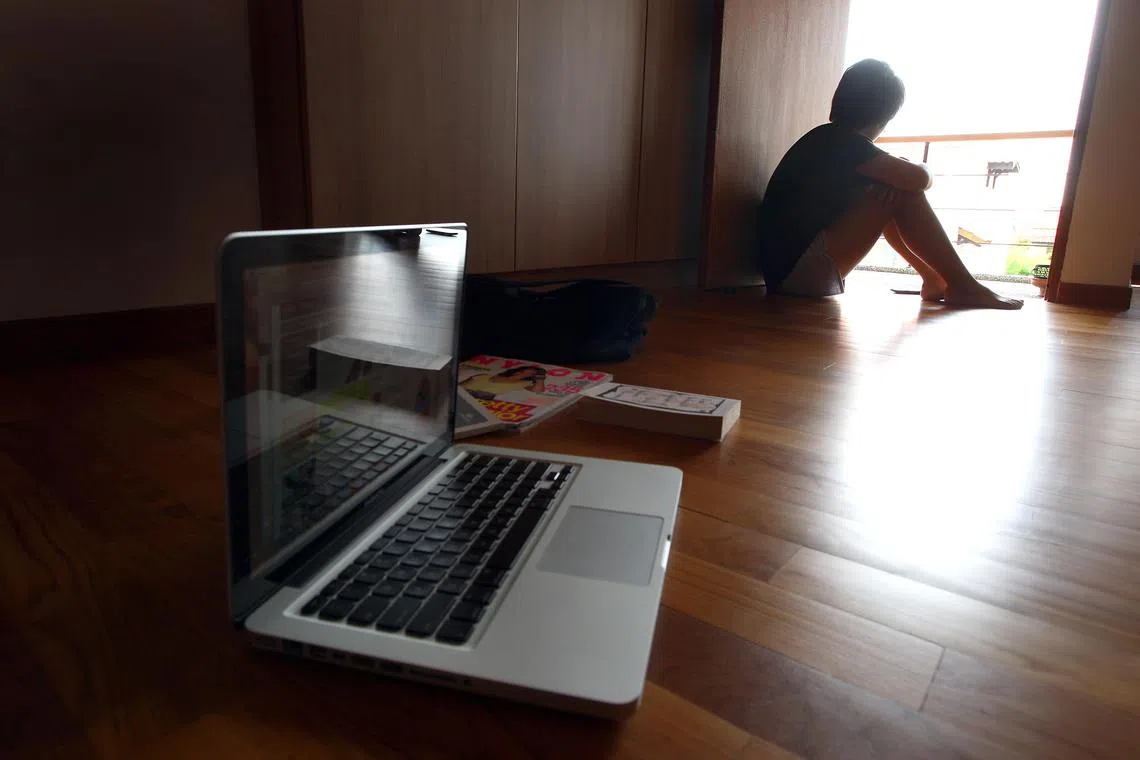MHA to introduce new laws to tackle online harms
Sign up now: Get ST's newsletters delivered to your inbox

Second Minister for Home Affairs Josephine Teo said there are still gaps in tackling online harms.
PHOTO: TNP FILE
SINGAPORE - Online harms such as scams, foreign interference, online gambling and sexual abuse material are constantly evolving.
These examples are criminal in their own right but there are gaps in tackling them, said Second Minister for Home Affairs Josephine Teo in her speech during the debate on the Ministry of Home Affairs’ (MHA) budget on Monday.
Because they pose a threat to the safety of Singaporeans, they must be dealt with in the same way that physical threats are tackled, she added.
To do this, MHA will be introducing the Online Criminal Harms Act later this year.
Mrs Teo said: “In the online space, the Government does not set out to dictate or curtail the adoption of technology or use of online platforms.
“However, we have a duty to protect our citizens from online harms, the same way we deal with threats in the physical domain.”
She said the proposed Act will expand the scope of regulatory levers that can be applied to online criminal activities, increase the scope of entities the authorities can act against, and introduce measures to deal more effectively with online criminal harms.
The expanded scope will include powers to stop or remove communications that facilitate crimes in the physical world, including the incitement of violence.
The proposed Act will also cover all mediums of online communication, and introduce measures to detect and reduce sophisticated malicious cyber activities such as scams and phishing.
Mrs Teo said that over the years, the Government has taken steps to deal with the different types of harmful online content and behaviours.
The Protection from Online Falsehoods and Manipulation Act Foreign Interference (Countermeasures) Act
The Broadcasting Act was amended last year to deal with harms that impact user safety,
The amendments also allow the authorities to block access to egregious content on online social media platforms.
But there are still gaps, Mrs Teo said, and there is still online content that is criminal or facilitates or abets crimes.
She said: “These include syndicated crimes such as scams; online incitement of mass public disorder; and malicious cyber activities such as phishing and the distribution of malware.”
Correction note: An earlier version of this article stated that the Broadcasting Act was amended this year. MCI clarified that it was amended last year and the amendments came into effect this year.
Mrs Teo said that in particular, MHA is closely monitoring online gambling and emerging trends such as loot boxes.
She said this blurs the lines between gambling and gaming, and Singapore has taken steps to deal with this.
She added that gambling in Singapore is prohibited unless licensed or exempted, whether it is online or physically. But she noted that games with loot boxes are allowed via a class licensing regime if the loot box is entirely free of charge to play, or players cannot exchange the virtual prizes for real-world payouts such as money or merchandise.
Mrs Teo said this was a practical and balanced approach, ensuring that Singapore safeguards against gambling inducement rather than gaming.
She said: “We will continue to monitor the effectiveness of our gambling legislation, and update our regulatory approach where needed.”



